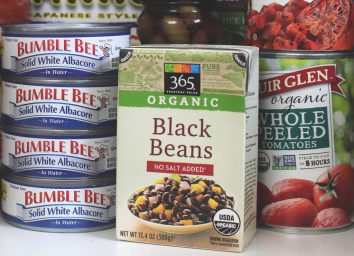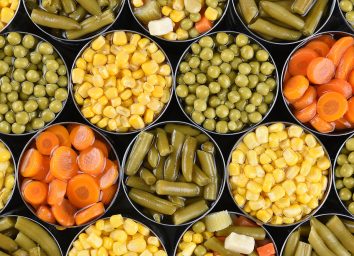What Happens to Your Body When You Eat Canned Foods
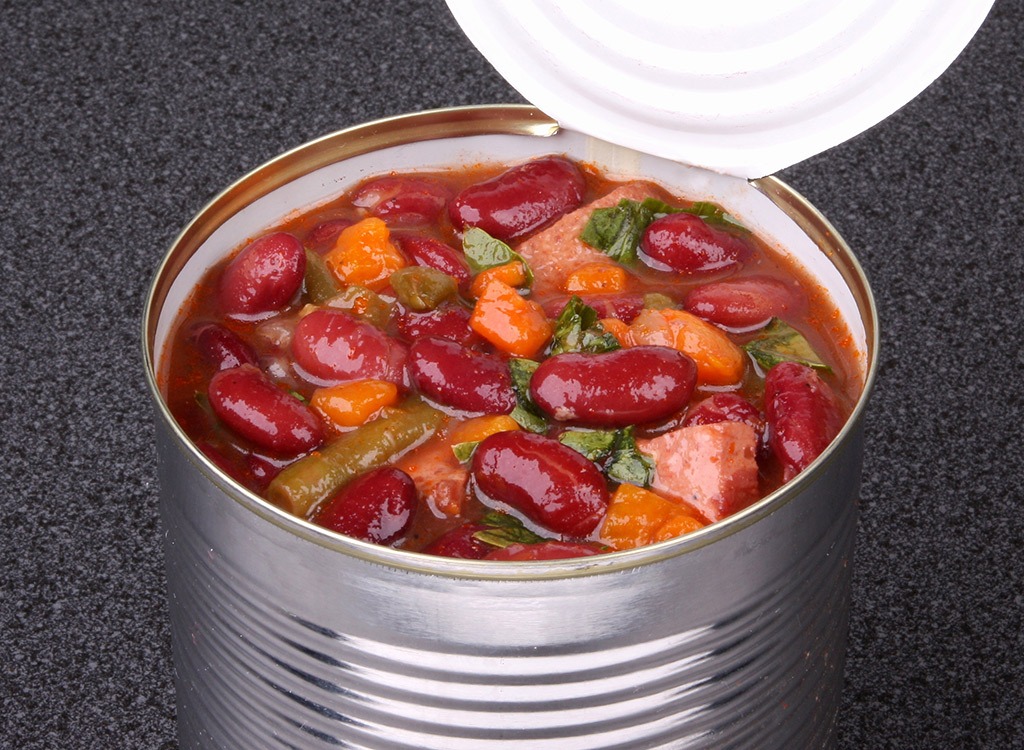
Canned foods are an easy and cheap way to bring some nutrition into your diet. Nearly every kind of vegetable and fruit are available in a variety of cans at whatever grocery store you walk into, but not all canned foods are made the same. That's why it's important to note the side effects it can have on your body when you eat canned foods.
Some canned items may be filled with health benefits, while others might not be the best choice to put in your body because they are packed with sugar and salt to help preserve them.
Below we've listed seven things that might happen to your body when you eat canned foods, and for more healthy tips, be sure to check out our list of The 7 Healthiest Foods to Eat Right Now.
They might put a strain on your heart.
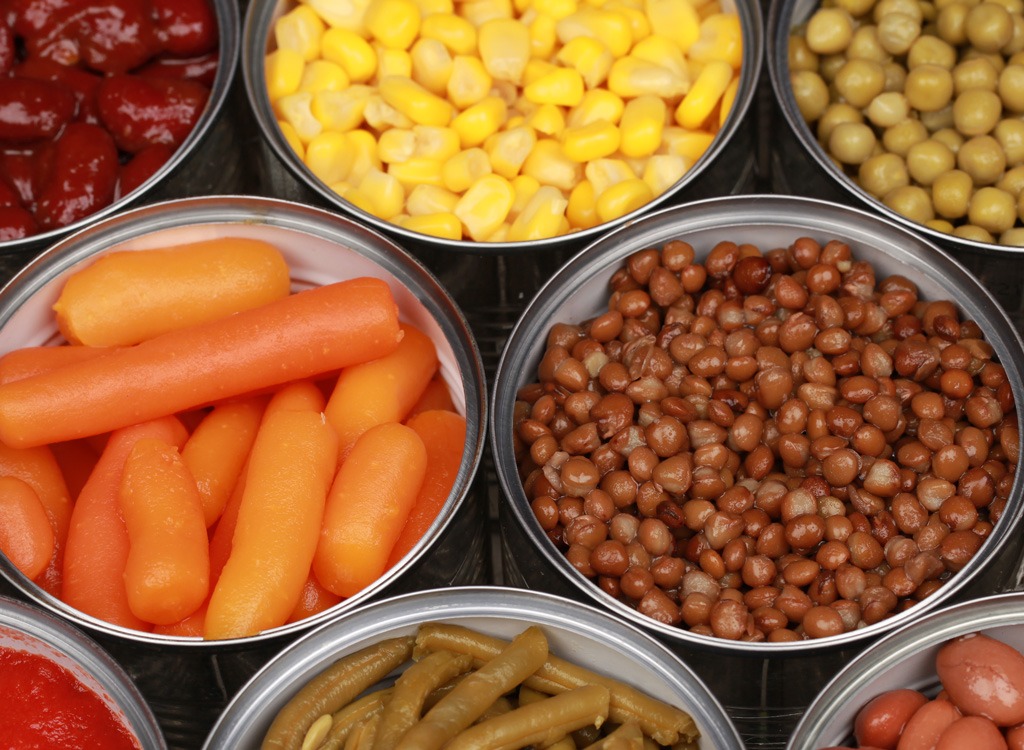
Canned foods can be a good source of several nutrients, but even without adding any extra salt to them, they can also be a source of extra sodium. According to Megan Byrd, RD of The Oregon Dietitian, many foods are canned with extra sodium to help preserve them during the canning process. This excess sodium can cause negative health impacts, especially for people who already suffer from high blood pressure or heart disease.
"Eating excess salt when you have heart conditions may make your symptoms and disease process worse," Byrd says. "If you are trying to watch your salt intake and would prefer to eat canned vegetables and beans, the best option would be to rinse them thoroughly before you eat them. Doing so rids a lot of the salt away from the canned food, making them a little healthier."
An easy way to get rid of some of the excess sodium is by rinsing the produce before eating it. Or turning to one of these 14 Best Low-Sodium Canned Soups for Heart Health, Approved by Dietitians.
Your body is eating produce at its most fresh.
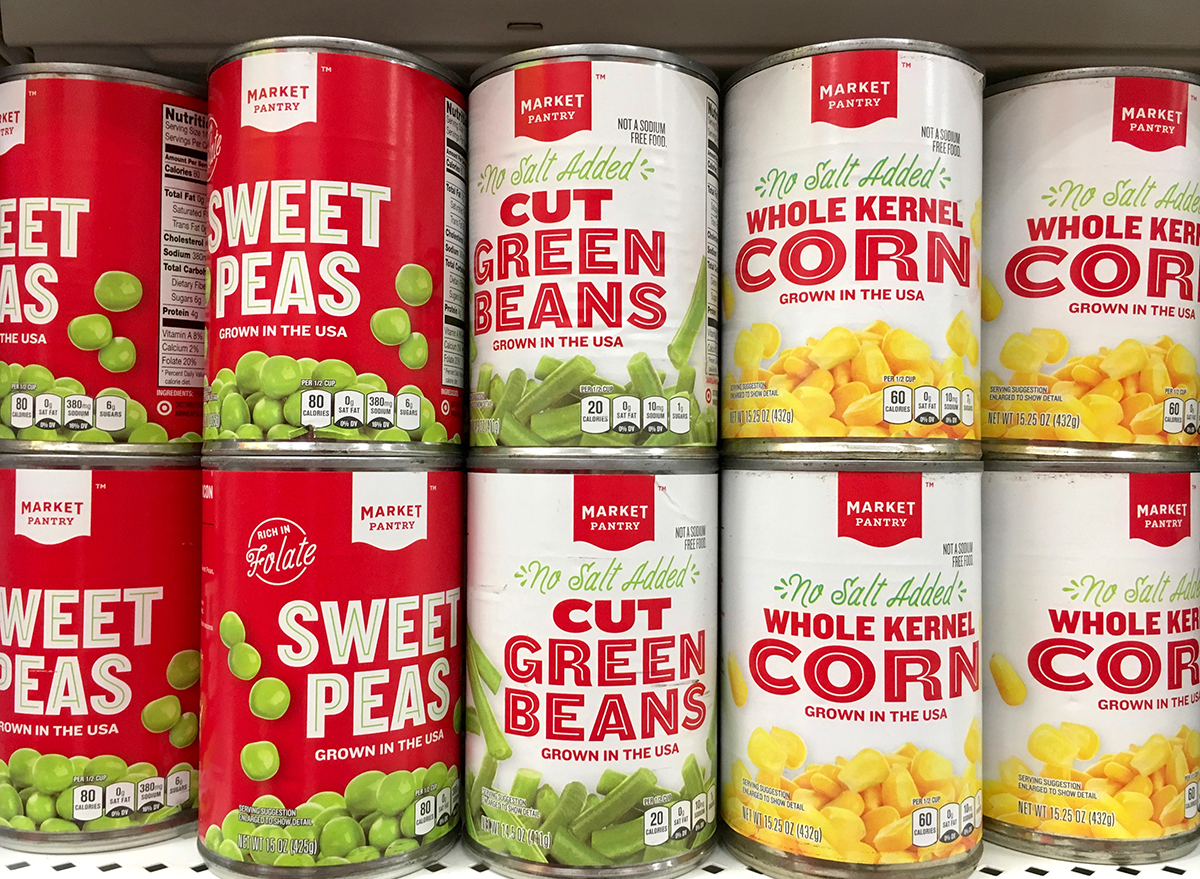
Picking out "fresh" produce at the supermarket can sometimes be misleading. Sometimes the produce is picked before ripening, to ensure that they don't spoil before they make it to the store, or they might have been sitting at the store for too long. On the other hand, canned produce is picked at its peak because there is less of a fear of spoilage, according to Dr. Rand McClain, the chief medical officer of LCR Health.
Get healthy tips straight to your inbox by signing up for our newsletter!
It's taking in more preservatives.
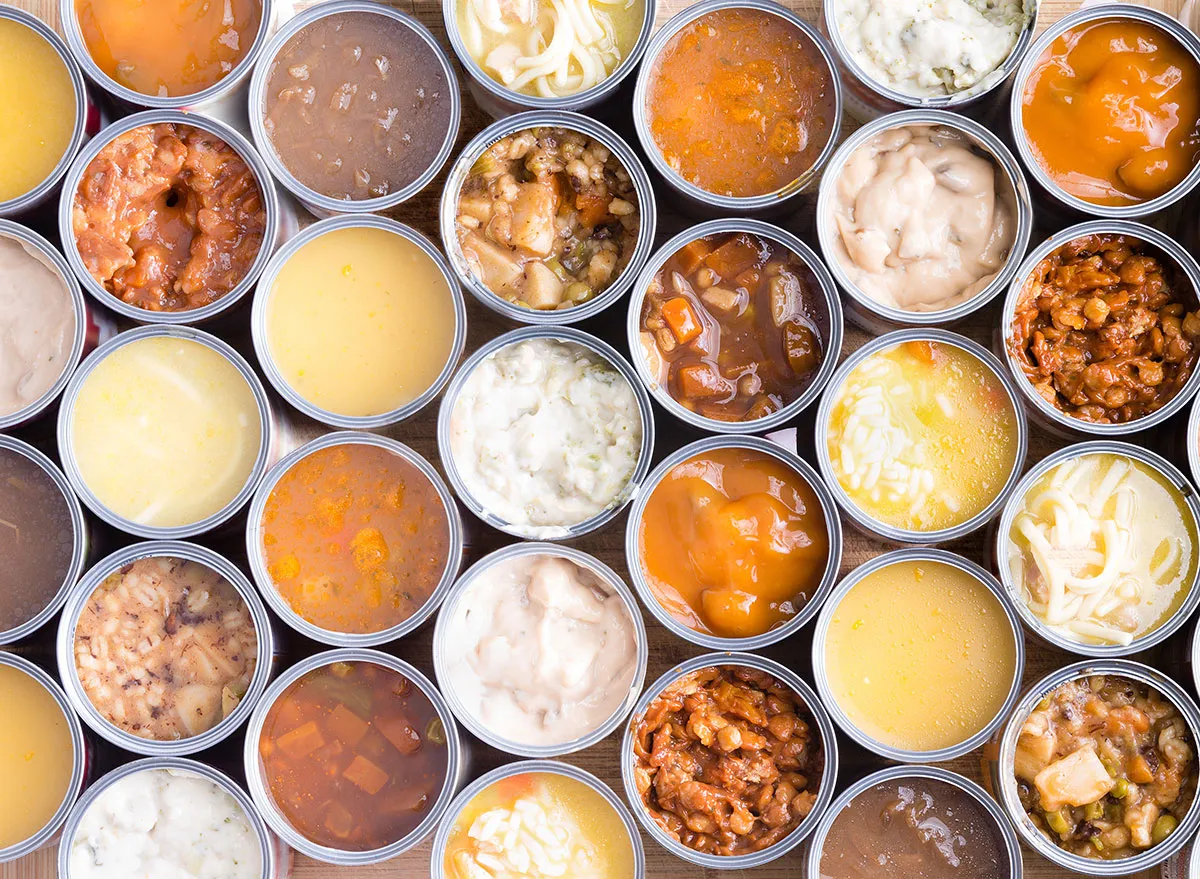
The benefit of canned food items are how long they can last. The long-lasting items are beneficial because they help to eliminate food waste, but they're built to last for so much longer than non-canned foods because they're packed with preservatives. Jay Cowin, a registered nutritionist and director of formulations at ASYSTEM, said that it's important to check out which canned food items are healthier than others in terms of what they're preserved in.
"Pick foods that have less sodium and no added sugars," says Cowin. "Fruits should be packed in their own juices and not syrup, and canned tuna and chicken will be healthier for you if you choose options that do not contain oil."
Here's What Eating Added Sugars Does to Your Body.
It could lead to health problems.

Canning food items is an intricate process that allows freshly-picked foods to be at their most nutritious for several months, and even up to a year or more in some instances. Canning involves several stages and according to Reda Elmardi, a certified nutritionist and the CEO of StrongChap.com, one of the steps of canning involves bisphenol-A (BPA), a chemical used on the can's inner lining.
"Traces of this chemical enter the food and expose the human body to dangerous diseases like type 2 diabetes, heart diseases, breast cancer, prostate cancer, and birth defects," says Elmardi.
It's receiving more antioxidants.
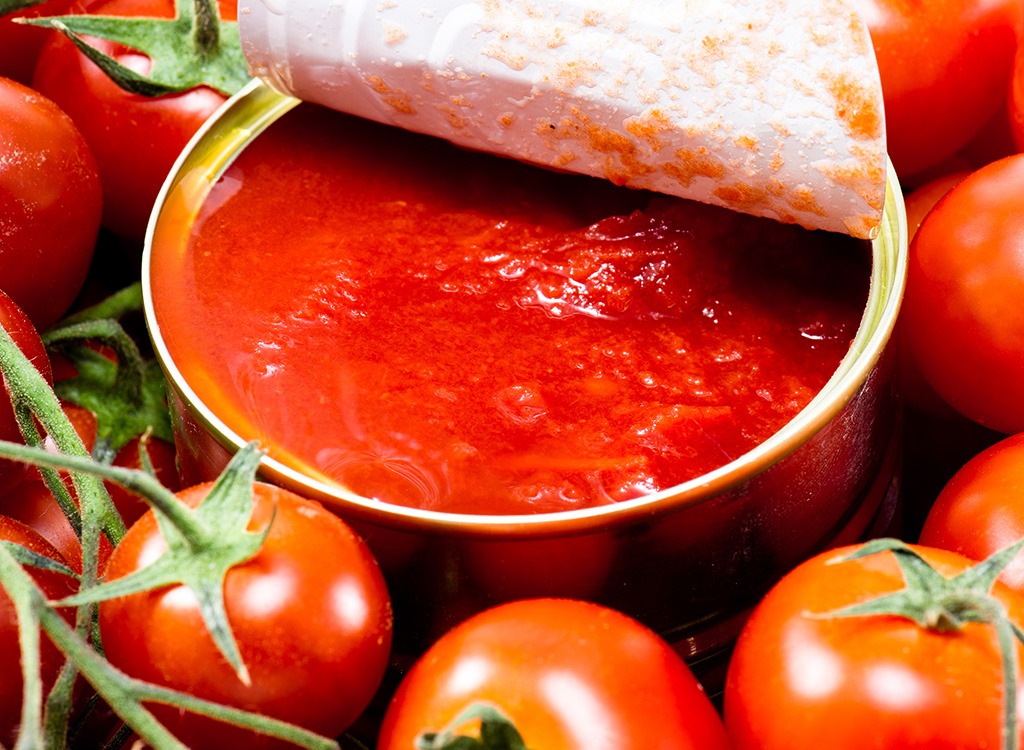
Occasionally the process of canning foods can lead to some of the nutrients being depleted, like Vitamin C, which is water-soluble, or able to dissolve in water, which food is canned in. On the other hand, some nutrients become more concentrated throughout the canning process, like lycopene, a nutrient with antioxidant properties that is found in tomatoes.
"Canned tomatoes have much more health-boosting lycopene than fresh tomatoes, and that's good news because antioxidants help to lower your risk of cancer and heart disease," says Dr. Stacie Stephenson, the founder and CEO of VibrantDoc.
Here's Why You Need Antioxidants In Your Diet—And How To Eat More Of Them.
You may be taking in bacteria.
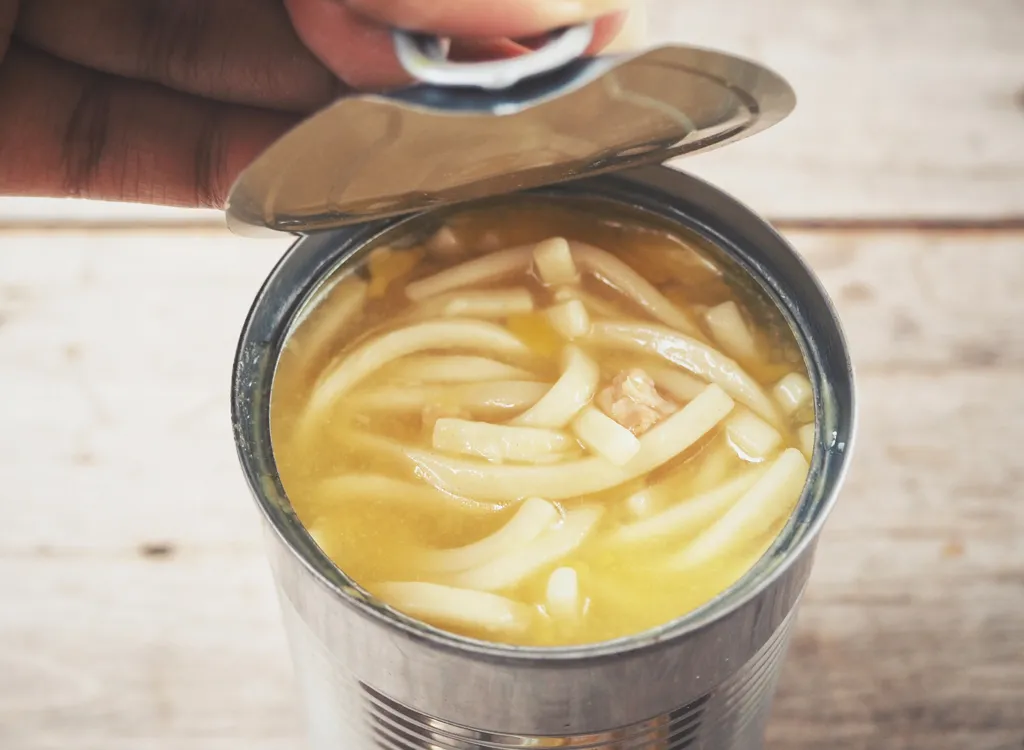
The chances of it happening are slim, but in some instances, when you eat canned foods that weren't properly processed, the could contain a dangerous bacteria—Clostridium botulinum. The bacteria is most commonly formed when foods are improperly canned at home.
"Consuming contaminated food can cause botulism, a serious illness that can lead to paralysis and death if left untreated," says Shannon Henry, a registered dietitian at EZCare Clinic.
You can enjoy produce even when it's not in season.
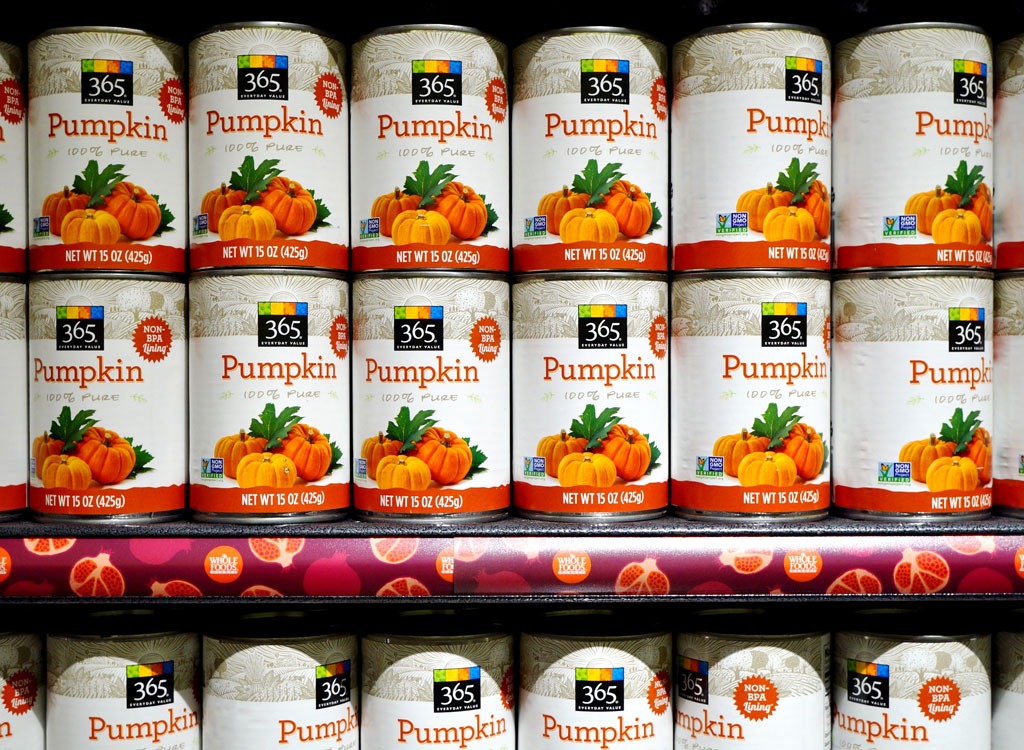
It's well known that brussels sprouts are at their best in winter, while there's no better time for cherries than summer. Apples are hitting their peak in the fall and asparagus is top-quality in the spring. But thanks to canning, produce can be eaten at all times throughout the year—allowing for an enjoyable taste experience no matter the season.
"Because canned foods can last [more than a year], you can buy canned peaches in the dead of winter and they'll have lots of sweet peach flavor," says Rebecca Clyde, a registered dietitian and the owner of Nourish Nutrition Company. "While if you were to need fresh peaches they could be expensive, flavorless, or not as high quality as you'd get other times of the year."
Or you can even whip up one of these 20 Things to Make with Canned Pumpkin!
